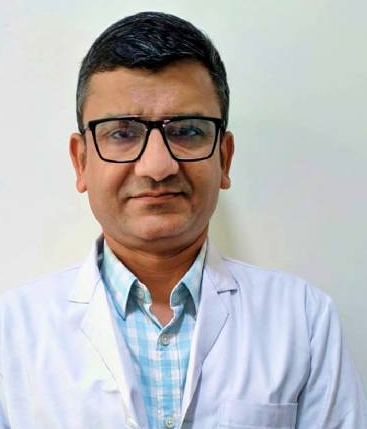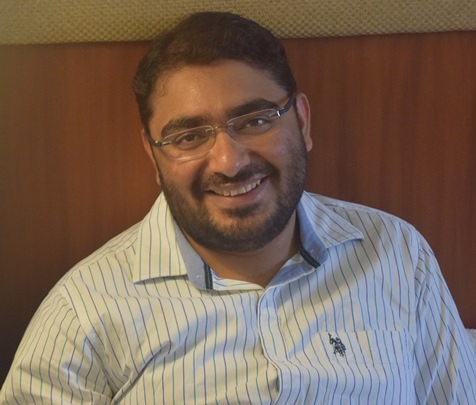Is Rhinoplasty Surgery Painful? - Pain Stages During Recovery

Quick Summary
- Rhinoplasty, also known as Nose Job, is a surgical procedure used to alter the shape and size of the nose
- It can correct various issues, including a crooked nose, a bulbous tip, or a hooked appearance
- Patients considering a rhinoplasty have a wide range of questions and concerns
- There is simply no way around the fact that surgery will come with some inconvenience, unpleasantness and physical discomfort
Rhinoplasty, also known as Nose Job, is a surgical procedure used to alter the shape and size of the nose. It can correct various issues, including a crooked nose, a bulbous tip, or a hooked appearance.
Patients considering a rhinoplasty have a wide range of questions and concerns. There is simply no way around the fact that surgery will come with some inconvenience, unpleasantness and physical discomfort. Continue reading the blog to get an answer to your question: Is rhinoplasty painful?
How is rhinoplasty performed?
Depending on the procedure's complexity and your physician's choice, rhinoplasty involves either local anaesthetic with sedation or full anaesthetic. Before having surgery, discuss with your doctor which form of anaesthetic is best for you.
- A plastic surgeon typically performs, which may be performed for cosmetic reasons or to correct functional issues such as a deviated septum or difficulty breathing.
- During the procedure, the surgeon will make incisions in the skin to access the underlying bone and cartilage. The bone and cartilage may be reshaped or removed to achieve the desired result. In some cases, the surgeon may also use synthetic material to build up or augment certain areas of the nose.
- Once the desired shape has been achieved, the incisions are closed, and the patient is typically placed in a splint or cast to help support the nose as it heals. The procedure may take anywhere from 45 to 90 minutes, depending on the case's complexity.
It is important to note that rhinoplasty is a major surgery, and the recovery process can be lengthy.


Is Rhinoplasty Painful?
Rhinoplasty is typically performed under general anaesthesia, so you should not feel any pain during the surgery. After the procedure, you may feel some pain and discomfort, but this can usually be managed with pain medication prescribed by your surgeon.
- You may experience swelling and tenderness around your nose and eyes during the first few days after the surgery.
- You will also have some numbness in the area, which is normal and should resolve over time. It is common to have some bruising around the eyes, which should resolve within a week or two.
- It is also important to remember that everyone's pain tolerance is different, and what may be a tolerable level of pain for one person may be more or less tolerable for another.
- Most people generally find that the pain and discomfort associated with rhinoplasty are manageable and resolve relatively quickly.
- If you experience pain that is not well-controlled or has concerns about your recovery, it is essential to contact your surgeon. They will be able to provide you with additional guidance and support.
Risks associated with Rhinoplasty
Like any surgical procedure, rhinoplasty carries some risks and potential complications. Here are some of the common risks associated with rhinoplasty:
- Anaesthesia risks: Any time you undergo a surgical procedure that involves anaesthesia, there is a risk of complications related to the anaesthesia itself. These risks are generally low but can include allergic reactions to the anaesthesia and breathing problems during or after the surgery.
- Infection: Any time the skin is broken, there is a risk of infection. If an infection does occur, it may be treated with antibiotics, but in some cases, the infected tissue may need to be removed.
- Hematoma: Blood accumulated outside of blood arteries is called a hematoma. In the case of rhinoplasty, this can occur within the soft tissue of the nose and may cause the nose to become swollen and discoloured.
- Nerve damage: The nerves in and around the nose are delicate, and it is possible to damage them during surgery. This can cause numbness, tingling, or a loss of sensation in the nose or surrounding areas. In some cases, the nerve damage may be permanent.
- Scarring: Even though the incision is made inside the nose, in a few cases and depending on the individual healing process, there can be scarring that may be visible.
- Dissatisfaction with the final result: While rhinoplasty can produce very satisfactory results, there is always a risk that the patient may not be happy with the outcome. In such cases, revision surgeries may be required to improve the nose's appearance.
How to curb the risks of rhinoplasty?
You may do several things to lessen the pain after nose surgery (rhinoplasty) and ensure a quick recovery, including:
- Pay close attention to your surgeon's instructions: Your surgeon will give you detailed advice on looking after your nose and dealing with any pain or discomfort during the healing process. For a speedy recovery and the best outcomes, it's crucial to follow these directions carefully.
- Take the prescribed medication: To assist you in coping with any discomfort following surgery, your doctor will prescribe painkillers. Taking medicine exactly as defined is crucial to managing your pain and suffering.
- Apply ice packs to the area: Applying ice packs to the site can help reduce swelling and discomfort.
- Elevate your head while sleeping: Elevating your head can help reduce swelling and discomfort. Use extra pillows or a wedge-shaped pillow to keep your head elevated.
- Avoid strenuous exercise: It's crucial to take it easy in the days immediately following surgery and to refrain from heavy lifting or intense activities. You'll receive detailed instructions from your surgeon on what to do and avoid during the healing process.
- Avoid blowing your nose: Blowing your nose can increase swelling, so it is essential to prevent it for the first few days after the surgery.
- Communicate with your surgeon: If you are experiencing pain that is not well-controlled or concerns your recovery, it is crucial to communicate with your surgeon. They will be able to provide you with additional guidance and support.
When to see a Doctor?
Is nose surgery painful for you? It is essential to contact your surgeon if you experience any of the following after a nose job (rhinoplasty):
- Persistent or severe pain
- Uncontrolled bleeding
- Difficulty breathing
- Fever or chills
- Redness, swelling, or drainage at the incision site
- Changes in the colour or sensation of your skin
- Persistent nausea or vomiting
It is generally recommended to keep your follow-up appointments with your surgeon after a nose job to ensure that your recovery is progressing as expected and to address any issues or concerns that may arise.
Takeaway
Rhinoplasty is a surgical procedure that carries some risks. However, most people find the pain to be manageable. Pain typically subsides with pain medication, swelling and bruising can also be present for several weeks, but they will decrease.
It is also important to remember that every individual is different. A normal part of rhinoplasty recovery for one person may not be the same for another. If you or your loved ones have doubts about whether is rhinoplasty painful, contact our team of experts at HexaHealth. Our expert team of doctors can provide you with the proper guidelines. Get in touch with us TODAY!Frequently Asked Questions
Is Rhinoplasty painful?
Rhinoplasty can be painful, but the pain is usually well-controlled with medication. The pain level experienced during the procedure can change depending on the individual and the extent of the procedure.
Is nose surgery painful?
Nose surgery, also known as rhinoplasty, can be uncomfortable and may cause some pain and swelling after the procedure. However, the pain is usually managed with medication, and most patients can return to normal activities within a few weeks.
How long does the pain last after nose surgery?
The pain level and duration after rhinoplasty can vary depending on the individual and the extent of the surgery. Pain is usually minimal and well-controlled with medication in the first few days after surgery. Some mild discomfort may last for a few weeks, but most patients return to normal activities within 7-10 days post-surgery.
Is rhinoplasty recovery painful?
Restoring from rhinoplasty can be uncomfortable, and patients may experience pain and swelling the first few days after surgery. However, pain is usually well-controlled with medication, and most patients find that the discomfort decreases significantly within a week after the surgery.
What can a patient expect after nose surgery?
After nose surgery, patients can expect some swelling, bruising, and mild pain, which can typically be controlled with pain medication. The nose may also be packed with gauze to help control bleeding and swelling. The patients will also be instructed to properly take care of their noses and avoid any activities that may cause injury during the initial healing period.
What things to avoid after nose surgery?
After nose surgery, it's important to avoid activities that may cause injury to the nose, such as bending over, lifting heavy objects, or engaging in vigorous physical activity. Patients should also avoid blowing their nose, wearing glasses, or sleeping on their side as they can put pressure on the nose and affect the healing process. Patients are also advised to avoid exposing the nose to the sun, saunas, and hot tubs or to avoid alcohol and smoking.
What are the things to keep in mind before rhinoplasty?
Before having rhinoplasty, it's essential to have realistic expectations, understand the risks and benefits of the surgery, and choose a qualified, experienced surgeon. It's also important to inform your surgeon of any pre-existing medical conditions or allergies and to follow pre-operative instructions carefully, such as avoiding certain medications. It's also essential to have a good understanding of the recovery process and the healing time.
How hard is recovery from rhinoplasty?
Recovery from rhinoplasty can vary depending on the individual and the extent of the surgery. Generally speaking, recovery is not difficult, but it requires patience and diligence to follow the post-operative care instructions. Patients may experience some swelling, bruising, and mild pain, but these symptoms typically subside within a week or two. There will be a healing period, during which the patient should avoid certain activities and follow the surgeon's instructions.
What is the side effect of rhinoplasty?
Like any surgical procedure, rhinoplasty carries certain risks, such as bleeding, infection, and poor cosmetic outcome. There's also a risk of nerve damage, which can cause numbness, tingling, or other changes in sensation. In some cases, revision surgery may be needed to correct any issues. Other possible side effects include swelling, bruising, pain, discomfort, breathing difficulty and temporary difficulties in smelling.
What is the success rate of rhinoplasty?
The success rate of rhinoplasty varies depending on the patient's goals, the procedure's complexity, and the surgeon's experience. The success rate of rhinoplasty is typically considered high, with the majority of patients achieving their desired outcome. However, there is no guarantee of 100% success with any surgery, and revision surgeries may sometimes be needed to correct any issues.
How long does nose job surgery take to heal?
The healing time for a nose job, or rhinoplasty, can vary depending on the individual and the extent of the surgery. It typically takes 1-2 weeks for most of the swelling and bruising to subside. However, it can take several months for the nose to heal fully and for the final results to be visible. Sometimes, it may take up to a year for the nose to fully recover and settle into its final shape.
Can you talk after nose surgery?
After nose surgery, patients may experience difficulty speaking or nasal congestion. This is due to the swelling of the nasal tissue, which can make it difficult to breathe through the nose and affect speech. This is temporary and resolves gradually as the swelling subsides. Patients generally usually speak within a few days or weeks after the surgery.
How do you sleep after nose surgery?
After nose surgery, the patient should sleep with their head elevated at a 45-degree angle to help reduce swelling. They should avoid sleeping on their side and instead sleep on their back. Using extra pillows to prop your head up can also be helpful. Sleeping on a recliner or a semi-upright position can also be a good option.
Can I sneeze after nose surgery?
It is not recommended to sneeze forcefully after rhinoplasty surgery as it can cause strain on the healing tissues and may lead to bleeding. Your surgeon will provide instructions to prevent sneezing, such as avoiding specific triggers or taking medication. If you want to sneeze, try to do so with an open mouth, which reduces the pressure on the nose. Sneezing should not be harmful as long as done gently and with proper care during the healing process.
Is rhinoplasty a difficult surgery?
Rhinoplasty is considered a complex surgery due to the intricate and delicate nature of the nasal structure. It requires a high degree of surgical skill and experience to produce a natural-looking result. There are also different levels of difficulty for rhinoplasty procedures based on the number of changes done and the patient's nose shape and structures.
Last Updated on: 1 March 2023
Reviewer

Dr. Aman Priya Khanna
MBBS, DNB General Surgery, FMAS, FIAGES, FALS Bariatric, MNAMS General Surgery
13 Years Experience
Dr Aman Priya Khanna is a highly experienced and National Board–Certified Laparoscopic, GI, and Bariatric Surgeon with over 13 years of clinical expertise.
He is widely regarded as one of the best bariatric surgeons in Ahmedabad, ...View More
Author

An enthusiastic writer with an eye for details and medical correctness. An avid reviewer and publisher. She emphasises authentic information and creates value for the readers. Earlier, she was involved in making ...View More
Expert Doctors (10)
NABH Accredited Hospitals (5)
Latest Health Articles
Related Treatments



















 Open In App
Open In App